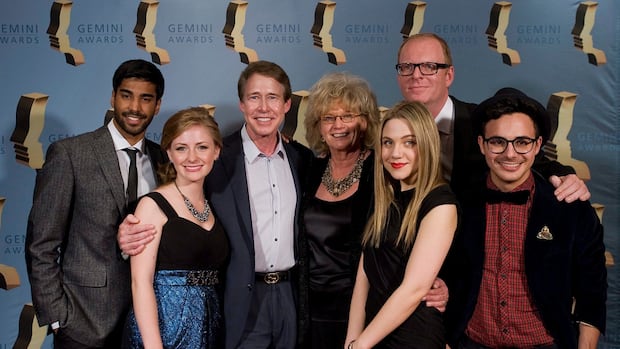As It Happens5:44What is the essence of cool? Study narrows it down to 6 key traits
Cool is cool, no matter where you are in the world.
That’s the conclusion of a new study that surveyed nearly 6,000 people in 13 different countries about what makes a person cool, and found the answers to be surprisingly universal.
“We wanted to [look at] the deeper characteristics associated with cool people. How do those change across cultures?” Caleb Warren, an associate professor of marketing at the University of Arizona, told As It Happens host Nil Köksal.
“We found that, largely, they don’t.”
The study, published in the Journal of Experimental Psychology identifies six perceived traits associated with cool people: extroverted, hedonistic, powerful, adventurous, open and autonomous.
And “perceived” is the key word here.
“Cool is an impression we have of others,” Warren said. “And I think, like other impressions, we form these almost instantaneously.”
The difference between ‘cool’ and ‘good’
The researchers surveyed 5,943 people online between 2018 and 2022 in the United States, Australia, Chile, China, Germany, India, Mexico, Nigeria, Spain, South Africa, South Korea and Turkey.
They asked each participant to think of four specific people: someone cool, someone not cool, someone good, and someone not good. They then had the participants fill out questionnaires evaluating the personality traits of those people.
“The question we wanted to ask in this research is: Is cool the same or just another way of saying you like someone, or you think they’re good?” Warren said. “And so what we tried to do is distinguish cool people from good people.”
They found there is, indeed, some overlap between the two — but also some very big differences.
Broadly, the authors say, good people were described as more agreeable, conforming, traditional, secure, warm, conscientious and calm.
“Its not that being bad will make somebody cool,” Warren said. “I think being different or distinct or counter-normative is … what ends up making people cool.”
‘One of the most important American cultural exports’
Rebellion is and always has been at the very heart of cool, says author and professor Joel Dinerstein.
“Contemporary cool owes everything to rebel counter-cultural movements, from Black jazz musicians to the [Beat Generation] to the punks,” he told CBC in an email.
Dinerstein has been teaching a class called “The History of Cool” for almost 20 years at Tulane University in New Orleans. He’s also the author of The Origins of Cool and curated the National Portrait Gallery exhibit American Cool.
He traces the origins of cool to the post-Second World War jazz scene, when Black musicians began “defying racism through language, style, and a nonchalant (cool) demeanour.” In fact, he says, it was U.S. jazz saxophonist Lester Young who coined the modern usage of the word.

Despite cool’s distinctly American origins, Dinerstein wasn’t at all surprised by the study’s conclusion that cool is a universal concept.
“Cool has been a global concept for more than a half-century,” he said. “It is one of the most important American cultural exports, along with the nation’s music and sports.”
Even the word “cool” has become universal across different languages, Warren said.
“In our survey, we asked people about the word cool without trying to translate it,” he said. “And so both the word and meaning have spread around the world, with the meaning largely intact.”
Is capitalism ruining cool?
But as coolness spreads, does it lose its edge?
The study’s authors say that over the years, coolness has strayed from its counterculture origins and morphed into something “more mainstream” and “commercially friendly,” with major brands like Pepsi and Nike turning it into a commodity.
But Dinerstein isn’t too worried.
“I don’t think corporate interests ever truly define cool as much as they, or the media, or certain lazy writers think,” he said.
Francis McAndrew — a social psychologist at Knox College and Illinois who has written about the concept of coolness —agrees.
“I don’t think that pop culture and advertising are creating the image of what it means to be cool as much as they are relentlessly reminding us about it to sell us stuff,” he said.
Ultimately, Warren says the value of coolness lies in its power to alter the status quo by raising the social status of people who “are able to move a culture forward by innovating or coming up with new ideas.”
It’s also, he says, not easily manufactured. In a separate research project he’s working on, he’s found that people who actively try be cool are usually perceived as less cool.
“I think it’s possible to become cool, but you need to be careful,” he said. “If you come across as trying to be cool, that’s not going to work.”





